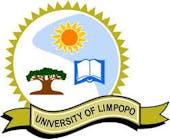
University of Limpopo

Links
Displaying 1 - 20 of 22 articles

Fewer graduates means fewer data analysis experts to aid in knowledge creation and innovation.

Countries that have adopted clear food labels have seen the health benefits. Researchers explain how a new system to alert South African consumers to unhealthy choices was developed.

Justice Mokgoro’s advocacy for group solidarity and reconciliation is discernible in several of her judgments.

The new governing coalition enters office amid euphoria and excitement. There are great expectations it will end corruption and fix the ailing economy.

Despite their pretensions to support reforms, it is clear that successive governments are not interested in the reform.

The future is bleak for Zimbabwe’s healthcare unless there are serious long-term reforms to build resilience.

The country has had five governments in 10 years. Every time a government collapses, the reform programme follows suit.

Lesotho has done a good job of curbing the powers of its monarch and making its electoral system inclusive.

Zondo’s career is made up of a tapestry of highlights, from lawyer to senior judge. He has written more than 200 judgments.

Her values of integrity, impartiality, professional ethics, and court decorum make her the ideal person to head the country’s judiciary.

A monarch with absolute powers is just as dangerous as self-serving politicians in a democracy.

The appointment of judges has hitherto been an obscure and oftentimes clandestine affair. This has produced incompetent judges and led to claims that the judiciary is beholden to the executive.

A disruption of societal norms created by industry interference is urgently required to create a shift in the food system.

The fundamental structure of the current constitution, which is cast in classical Westminster conceptions, is unsuited for modern-day constitutionalism.

The doctrine of equality is ingrained both in theory and in the express provisions of Lesotho’s constitution.

Because insects are an affordable and local food source rich in protein, they can be used as a meat replacement.

Humans have an innate interest and ability in naming biologically meaningful entities, or species. Taxonomy, then, vies for the title of world’s “oldest profession”.

The system of apartheid is long gone. But its legacy of poor funding for historically black universities - and of planning that banished black universities to cities’ margins - remains.

Funding for South African higher education is inadequate considering past inequalities. Even more alarming is the fact that plans for research development and innovation in science remain elusive.

The psyche of defeat is linked to various things: the team’s maturity, captaincy, level of preparedness, confidence in coaching staff and personality characteristics of individual team members.
